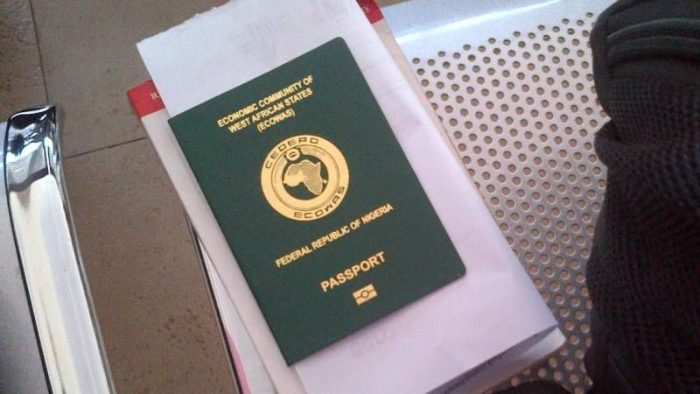
Eid-el-Kabir: High cost of transportation, foods dampen celebrations,
By Demola Akinyemi, Ebunoluwa Sessou, Bashir Bello, Ibrahim Hassan, Shina Abubakar, James Ogunnaike, Musa Ubandawaki and Adeola Badru
ILORIN — As Nigerian Muslims join their counterparts in other parts of the world to celebrate the Eid-el-Kabir, prices of food items and transport fares have risen sharply.
Also, the prices of various sizes of rams, which is symbolically slaughtered to mark the ocassion has gone up, forcing many Muslim faithful to settle for alternatives.
Soaring prices dampen celebrations
In Ibadan, Oyo State, the soaring food prices have dampened the celebrations, forcing many to rush for last-minute purchases.
At Bodija Market, Ibadan, Vanguard spoke with several Muslim faithful and vendors, who shared their experiences amid the challenging circumstances.
Alhaji Ganiyu, a ram seller, expressed his frustration with this year’s sales, stating “My stall is usually busy at this time, but this year is different. Many can’t afford to buy even one ram.”
A mother, who gave her name as Khadija, recounted her difficulties in preparing for Eid-el-Kabir. Despite saving for months, soaring prices have significantly reduced her budget.
“I have kids who are looking forward to Eid-el-Kabir, but I’m concerned about letting them down. We’ll make do with what we can, but it’s a challenge.”
Prices soar in major Lagos markets
The prices of perishable and non-perishable food items have soared in some major markets in Lagos.
A visit to the popular Oyingbo market revealed that the price of Scotch Bonnet popularly called (Ata Rodo) ranges between N2,000 and N8,000 depending on the quantity as against N200 and N500 last month.
Meanwhile, a bag of Rodo on the eve of Sallah celebration is N200,000, as against N110,000 before. A trader told Vanguard that the price hike started on Monday.
Also, a bag of bell pepper, called tatashe, yesterday, was N200,000 as against N130,000 last week.
A bag of chilli pepper popularly known as bawa or shombo, now costs N200,000 as against N120,000 last week and a basket of tomatoes cost N220,000 as against N160,000 last week.
At Sabo, a pepper seller lamented that the cost of pepper has negatively affected their sales.
According to him, “The changes in the prices started on Monday, when Hausa traders started travelling back to the North.
“This situation has also rubbed off on people as they no longer patronize us as it used to be. I am also not happy the way things are going this year.
“Last year, it was a little better than what we are experiencing this year. Imagine that a lot of people want to celebrate Sallah without having food. Some people prefer to buy dried pepper because it is cheaper than the fresh ones.”
Vanguard gathered that, in major markets including Mile 12, Oyingbo, Mushin, Lagos Island, and Ajah, Epe) between Monday and yesterday, prices of food items jumped by almost 300 per cent in some cases within the space of one year.
A trader at Mile 2 martket told Vanguard: “A basket of tomatoes which was sold between N145,000 and N160,000 in 2024 had risen to N200,000 at Mile 12, N220,000 in Oyingbo market while places including Mushin, Lekki, Ajah, Epe, Iyana-Oba, Orile, cost as high as N16,000, N12,000, N10,000 and N8,000 per small measurement depending on the area.”
Vanguard gathered that onions are relatively cheap perhaps, it is in its season. But, it is still costly compared to what it was in 2024.
Mohammed, an onions seller in Oyingbo revealed that, a 100kg basket of onions is now selling for N100,000 against N70,000 in 2024.
“Today, a bag of 50kg rice ranges between N50,000 and N65,000 depending on the product and quality,” he added.
Also, prices of rams, goats and cows in Lagos have soared.
A medium-sized cow ranged from N700,000 to as high as N1.5million, a ram ranged from N250,000 to N700,000 and a goat from N100,000 to N150,000 depending on bargaining strength.
Eggs and chickens have also jumped as a crate of eggs is sold between N6,000 and N7,000 as against 2024 when it was sold for N4,500.
Price hike in Kwara state
Transport fares from Ilorin to Lagos and vice versa have increased by 300 per cent. It used to be N10,000 but it’s now 30,000.
Also, transport fare from Ilorin to Abuja and vice versa is now N28,000, it used to be N25,000 before Sallah.
Omu Aran to Ilorin was N2,500 before Sallah, but it’s now N4,000.
It was gathered that the prices might increase till late in the evening and return to normalcy by tomorrow morning.
Price of one bag of rice has remained stable or even lower, it was N68,000 before now, but it oscillates between N60,000 and N62,000 during this Sallah period.
Transport hike in Osogbo
Although the prices of food items remain unchanged, the cost of transportation almost doubled.
There is price hike in both intra and inter state travels.
Those traveling from Osogbo to Iwo, which was N2,000 went up to N3,000, while travellers to Ibadan from Osogbo now pay N4,000 as against N2,500 before now.
Travellers going to Lagos State paid N12,000 against N7,000 before sallah season.
Hardship forcing prices down in Sokoto
The current prices of foodstuffs in Sokoto is decreasing by the day with a 50kg bag of parboiled rice being sold at N63,000 as against the N90,000 in March and early April this year.
A sack of local potatoes sold for N20,000 in April is now N12,000. The prices of beans and soya beans have also dropped significantly from the initial prices despite the anticipated Sallah festivities.
Prices of tomatoes, onions, pepper and other vegetables have also dropped.
Many believe that the crash in prices of foodstuffs in the state was due to economic downturn.
Sokoto markets have been flooded with all kinds of foodstuffs, including yam, fresh maize and Irish potatoes which is so common to many households in the state.
According to the Chairman, Sokoto Traders Association, Alhaji Bashir Gishiri, the crash in prices of foodstuffs in Sokoto and other parts of North West is an act of God.
“The security situation had forced many farmers to abandon farming for fear of bandits and other criminal gangs operating in the region.
“As God wants, the prices of farm produce is still falling. I am optimistic it will continue to crash as security sitituation improves and many farmers go back to farms.”
Prices skyrocket Ogun
A visit to markets in Abeokuta, Ogun State, revealed that prices of food commodities have gone up compared to what was obtained in May.
At the popular Olomore market, a basket of tomatoes that was sold for N45,000, is now N150,000, while pepper, which sold for N60,000 in May, is now between N150,000 and N170,000 per basket.
A visit to different locations where they sell rams showed that the prices have also gone up, compared to last year. Small rams sell for between N400,000 and N500,000, while big ones sell between N800,000 and N900,000.
A bag of rice is between N60,000 and N61,000.
A ram seller, who identified himself as Mallam Abdullah Sanni attributed the high cost of rams to transportation cost.
He explained that transporting the animals from the North costs more compared to last year.
He also attributed the high cost to low supply and insecurity in some parts of the northern states.
Fares rises as food items remain stable in Kaduna
In Kaduna, prices of food items have remained stable. Mrs Aisha Muhammad, who resides in Kaduna North, said a 50kg bag of rice sells for between N55,000 to N70,000, depending on the grade, compared to before when foreign rice sold for over N100,000.
She said a local measure of 8-cup sells for between N2,200 to N2,500.
A local measure of 8-cup of beans cost N2,500 and that of gari sells at N1,200. Before it was sold for 1,500. A bag of maize sells for between N50,000 to N55,000, compared to a couple of months ago when it sold for about N70,000.
On transport fare in the the state, a trip by bus from Kawo Kaduna to Abuja cost between N9,000 to N10,000. A trip to Zaria by bus costs between N1,500 to N2,000. Before, a trip to Abuja was between N6,000 to N7,000, while from Kaduna to Zaria was from N900 to N1,000.
Within Kaduna town, a journey from Sabon Tasha to Kawo cost between N800 to N1000, while commuters pay between N500 to N600 from Gari Kasuwa to Gonin Gora. From Kawo to Gari Kasuwa cost N300, either by commercial buses or Keke Napep.
Prices up in Kano
Prices of foodstuffs remain relatively low but prices of vegetables and livestock which are essential commodities for the preparation of the foodstuffs had soared.
A customer, Ramatu Aminu said a basket of tomatoes which was sold for N11,000 to N20,000 on Sunday now goes for N40,000.
She also said a basket of pepper was around N80,000, but now heading to N150,000.
The story is the same as commuters lamented hike in transport fare.
A traveler, Abdulwaheed Kola said he boarded vehicle from Kano to Lagos at the cost N27,000 a month ago but it now cost him N35,000.
Another traveler, Muntari Masanawa said he boarded vehicle from Kano to Malumfashi LGA in Katsina State at the cost of N3,000 but now cost N3,500 while from Kano to Funtua LGA in Katsina State, which cost N4,000 now goes for the cost of N4,500.
Ram traders lament rising preference to cows
Some ram traders in Lagos State have lamented the preference for cows to rams by Muslim faithful.
The traders said that most people prefer to buy cows than rams because of the size and the fact that five families could buy and share for the celebration.
A ram trader, Mr Ibrahim Hassan, at the Lawanson area of the state, said patronage has been decent, but with an interesting twist.
“The patronage this year is not bad, but I have noticed that people are buying more cows than rams. I believe the reason behind this shift is that cows are more economical and offer better value for money.
“When families or even groups of friends come together, they can share a cow and still fulfil the sacrifice. That way, instead of each person buying a ram for over N500,000, they split the cost.
“The cheapest cow you can get right now is around N800,000, while the cheapest ram starts at about N550,000. Prices also vary depending on the size and weight of the animal.
“I have contacted my sources for more cows, but the market price has gone up since last week. It’s a volatile market, and prices can change quickly,” Hassan said.
Also, Mr. Shakiru Gbadamosi, another ram seller at Lawanson, said he observed that “People are weighing their options this Sallah, and they have been buying more of cows.
“I was surprised to see some buyers turning to cows, and this trend has been on for weeks. Although many still prefer rams for Sallah because it’s about tradition and religious significance.
“The ram is the symbolic animal for the sacrifice, and that’s not something easily replaced.
“Prices have gone up this year, an average size ram now costs between N550,000 and N700,000 depending on the size and breed. But despite that, the demand remains steady.
“Some people have been buying younger rams because they are less expensive but still acceptable.
“The younger rams are sold for between N130,000 and N250,000,” Gbadamosi said.
A buyer, Mr. Folajimi Aderibigbe, who confirmed the trend, said buying a cow seems like a better option.
“We are a family of eight, and instead of buying two small rams, we joined with my brother-in-law and bought a cow. It cost us N950,000, but we split it. Everyone still gets to perform their sacrifice and save money.
“Traditionally, rams are the preferred animal for Eid-el-Kabir (Sallah). However, economic realities have changed things, and we must find a way to adapt,” he said.
Also, vegetable oil traders said they have observed increased patronage due to the Sallah celebration.
Mrs. Linda Nwachukwu, a cooking oil trader at the Lawanson Market, said the demand for cooking oil increased because of preparations ahead of Sallah.
“The celebration usually increases the demand for groundnut oil. Consumers have been stocking up oil since last week.
“Cooking oil prices have risen, but it is cheaper than last December, a 25-litre container cost N110,000, a price that persisted until April 2025.
“A recent price adjust-ment, three weeks ago, sets the current rates for groundnut oil at N78,000 for 25 litres, N35,000 for 10 litres, and N18,500 for five litres.
“This is unusual, groundnut oil prices normally surge in December and then decrease by January or February, but it stayed high for a long time,” she said.
Another trader, Mrs. Imoleayo Fakunle, said she buys in larger jerrycans and sell in measured portions to customers who cannot afford bigger sizes.
“Not everyone can buy 25 litres or even afford the branded ones, so as a vendor, what I do, is to buy in larger containers and sell in small portions.
“Groundnut oil is expensive, but it is essential. A lot of customers have been buying the measured portions, and they are always happy that they can save money.
“Despite rising prices, customers prioritise the essential ingredient for their celebrations,” she said.
Mrs. Taraoluwa Alausa, a consumer at the Idi-Araba Market, said she had learned to prioritise when buying cooking oil since the increase in the price of groundnut oil.
“I purchase measured portions of oil specifically for frying and use a good branded oil for general cooking.
“Lately, I have become more conscious about the type of oil I use. I want something natural and less processed. It’s a bit pricier, but I think it’s good for healthy living.
“However, for this celebration, there is going to be an exception because I will be frying with the measured portions I bought. This way, I can save more and even fry more,” Alausa said.
Residents groan high cost of ram, settle for alternatives
In Abeokuta and its environs, the situation is the same, as residents lamented the high cost of ram, while opting for alternatives.
Some of them in separate interviews, noted that the exhorbitant prices of sacrificial animals could make them seek alternatives.
Alh. Ganiyu Babalola, a civil servant, explained that he used to buy, at least, two rams to celebrate the festival with his parents and children.
Babalola said the amount spent in 2024 to buy two rams is what he spent buying one this year.
“I bought the two rams N250,000 each but this year, I got one for N470,000. Instead of buying two, I called my siblings and we contributed to buy a cow to support the ram I bought,” he said.
Akande Jimoh, a welder, said he has no plan to buy a ram this year, considering the cost implications.
“I can not afford to buy a ram this year. The price of a big ram ranges from N550,000 to N800,000. Where will I get such money? I have decided to take two of the goats I am rearing to celebrate the festival. My God will understand.
“I wish the government has the power to control the prices of these animals,” he said.
On her part, Mrs. Bidemi Ahmed, said: “Ram, whether big or small is not affordable this year compared to 2024.
“Although, my husband has bought one, but I must say I’m not so happy with the choice he settled for, at the rate of N250,000.
“Gone are those days when they will be begging you to buy, but right now, when you turn your back, they won’t even call you back,” she said.
Mallam Abdulfatah Akanni, an Islamic scholar, described the situation as a challenging moment for Muslims.
“As Muslims, we have to be cautious. Let’s cut our coat according to the size of our clothes,” he said.
Malam Yusuf Sanusi, a ram vendor, also attributed the high cost of ram to transportation cost and other logistics.
Farmers, traders lament low sales
Meanwhile, All Farmers Association of Nigeria, AFAN, and foodstuffs traders in Lagos have lamented low patronage of foodstuffs this Sallah season due to inflation which affected consumers purchasing power.
The Lagos State AFAN Vice Chairman, Mr. Shakin Agbayewa, said consumers purchasing power had reduced despite the drop in the price of some produce in the country.
“The celebration this year is associated with mixed feelings. Some of the produce have dropped in price but the purchasing power of the people have dropped.
“The price of a bag of rice in Lagos State and its environs is between N51,000 and N57,000 depending on the location. However, people can buy rice, the ram but have no money to buy pepper to cook for the Sallah.
“For pepper, as of today, pepper is on the high side. It is really on the high side. A lot of people are complaining about pepper.
“We encourage people to start cultivating pepper in the state. The cost of transportation is what has made pepper costly at this celebration season.
“Sometimes, I think, the price hike of these produce during the Sallah celebration is intentional, the traders just want to make extra profit because of the celebration.
“After the celebration, the prices of pepper and tomatoes, I believe, will drop,” Agbayewa said
On her part, Mrs. Tolu Agunbiade, a foodstuff trader at Agege area of the state, said patronage was quite low when compared with 2024 Sallah.
“The price of rice has drastically dropped in comparison to last year’s Sallah celebration. A bag of rice now sells between N56,000 and N62,000 depending on the location and species. In comparison to last year’s celebration, a bag sold at N98,000 to N110,000.
“However, the purchasing power of the consumers is quite low, people are not buying as they ought to, even with the reduced price.
“Even the price of groundnut oil has dropped, last year a five litre keg sold for N13,000 to N16,000, presently, the same quantity sells at N10,000 but the patronage is quite low,” Agunbiade said.
A caterer and foodstuff trader, Mrs Pat Gbagi, said prices would drop after the Sallah celebration, while urging consumers to be patient.
“This week, the price of tomatoes and pepper is quite high due to the Sallah celebration.
“The cost of pepper is astronomically high, a bag of pepper at Mile 12 market sold at N200,000 but today the same quantity sells between N250,000 and N300,000.
“If not for the celebration, I do not advise anyone to go to the market this week. However, people will only buy what they can afford,” Gbagi said.
Ram sellers lament low patronage as prices soar
Ram traders in Osogbo, Osun State, yesterday, lamented low patronage, attributing it to rising costs and economic challenges in the country.
Some ram sellers said there is decline in patronage compared to what was applicable last year due to increase in the price of rams in the market.
Ismail Musa, a trader at the Powerline market, Osogbo, lamented that patronage is not encouraging compared to last year, noting that the cost of sourcing rams from the North has affected the price.
Musa said that the patronage was low due to the present economic situation in the country.
“People do not have much money. I have only sold five rams and four goats in the last three days. Last year’s sales were impressive, but this year’s sales have been slow.
“We are selling a big sized ram for N400,000 to N420,000 and the small sized ram between N120,000 and N130,000.
“The rams that we sold for N200,000 last year are now selling for N450,000,” he stated. He identified the cost of transportation from the North as the major factor that has contributed to the rising cost, calling for the reduction in the price of petrol.
Another ram seller, Abioye Saheed, said a medium size ram is being sold between N350,000 and N500,000 against N200,000 last year.
“Last year, the transportation cost was between N700,000 and N800,000 per trailer, but this year, we are paying over N2 million from the northern part of the country,” he disclosed.
A cattle seller in front of Fakunle Comprehensive High School, Osogbo, Laro Suleiman, said that a small sized cow sold for N250,000 last year is now N450,000.
Suleiman said the cows were transported from Jebba, Kwara, at the rate of N5,000 each as against N2,500 last year.
“The increase in everything is because of the hike in the price of fuel,” he added.
A buyer, Odunade Kazeem, said that he bought a small sized goat for N50,000.
“This size of goat was sold for N35, 000 last year,” he said.
The post Eid-el-Kabir: High cost of transportation, foods dampen celebrations appeared first on Vanguard News.
,
“The increase in everything is because of the hike in the price of fuel,”
The post Eid-el-Kabir: High cost of transportation, foods dampen celebrations appeared first on Vanguard News.
, , Idowu Bankole, {authorlink},, , Vanguard News, June 6, 2025, 2:48 am











